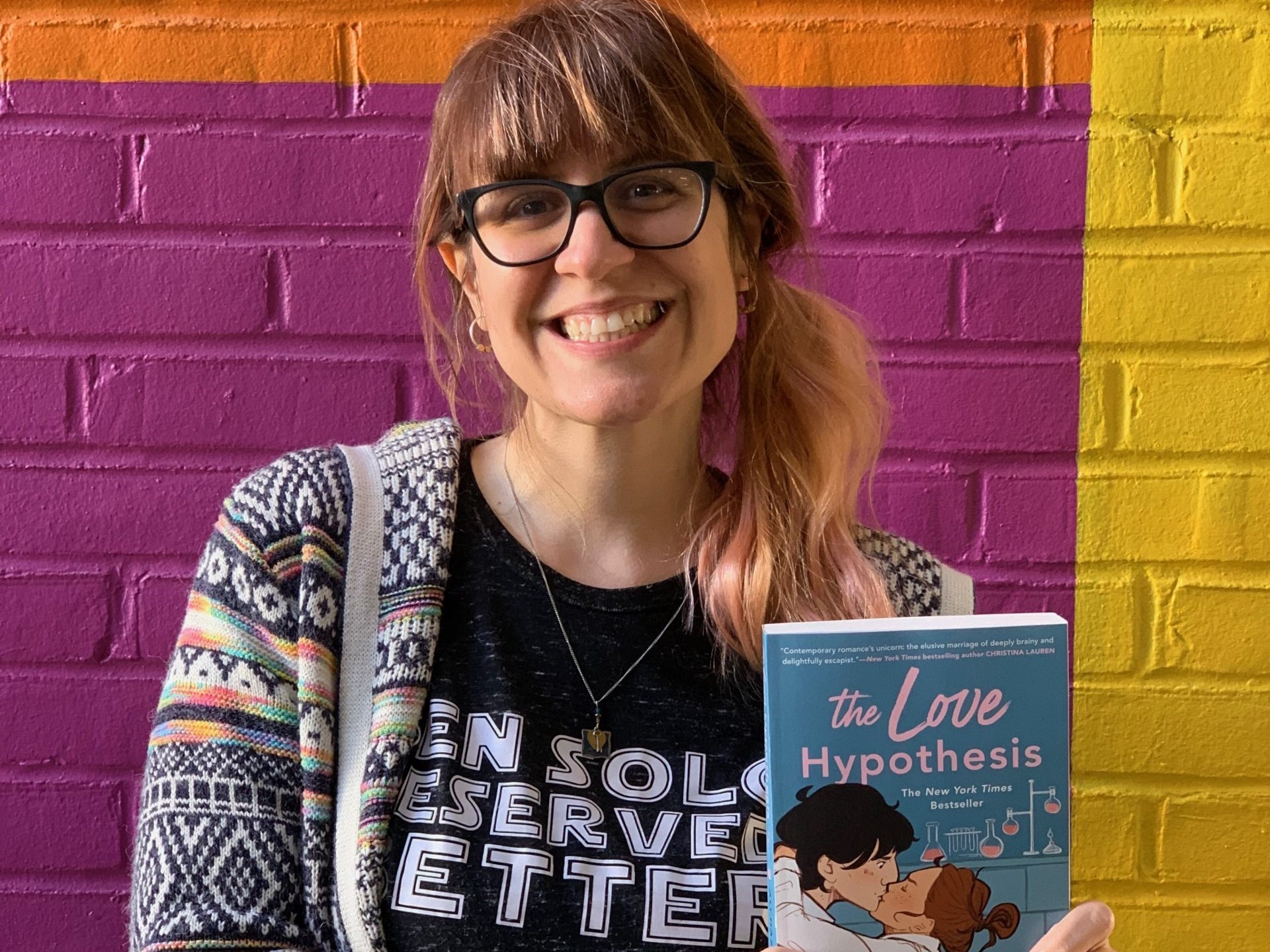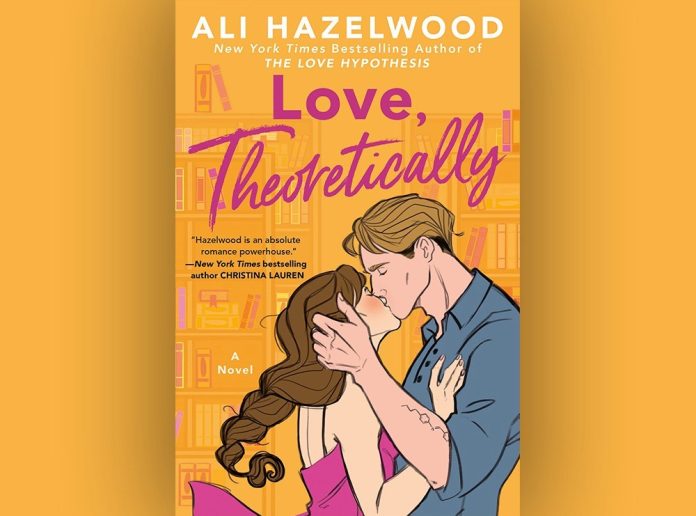When it comes to romance novels, Ali Hazelwood is part of a select group of authors who have found their niche and stuck to it. Emily Henry has her female protagonists with a penchant for writing, Elle Kennedy has her hockey players, and Hazelwood has her STEM-based academic rivals to lovers romances.
For those unaware, ‘academic rivals to lovers’ is a romantic trope that centres around two people (usually a man and a woman) who have somehow found themselves at odds with each other in their academic fields. Eventually, of course, we realise that one (always the man) loved the other (always the woman) all along, and any disagreements they’ve had in the past were just simple misunderstandings. It’s predictable, it’s a little silly, and most importantly—it’s fun.
Love, Theoretically doesn’t depart from this formula. The protagonist, Elsie Hannaway, is a theoretical physicist struggling to pay off her student loans as an adjunct professor. She is also a chronic people-pleaser and spends her nights working as a ‘fake-girlfriend.. Jack Smith—our tall and handsome love interest—is an experimental physicist and happens to be the brother of a man Elsie has ‘fake-dated,’ although he isn’t aware of the ‘fake’ part. Moreover, in the science community, Jack is seen as the main nay-sayer of theoretical physics.
A lot to unpack, I know.

With a ridiculous set up and a clear follow-through, Hazelwood is never one for subtlety. The brilliance of Love, Theoretically is that even when you can spot a twist or a reveal coming a mile away, when it eventually does come you feel the same level of excitement that you would if you hadn’t known at all. Because it’s not about surprise or being taken off-guard; it’s about anticipation. We know these two will end up together. We know there will be some drama along the way, in the form of misunderstandings, hidden pasts, and evil academic mentors (another strong theme in Hazelwood’s novels). We know all this, and yet we read on.
It’s like a favourite meal; I know that the special braised eggplant at Chinese Dumpling Master is always going to taste the same. That doesn’t mean I won’t order it every single time.
This isn’t to say there aren’t some unique aspects of Love, Theoretically that make it worth reading (the salt, if you will). As always with Hazelwood’s books, it’s fun to gain insight—however broad—into a new academic field. The Love Hypothesis (2021) gave us biology and PhD candidacy, and Love on the Brain (2022) gave us neuroscience and interdisciplinary NASA-based projects. Now, in Love, Theoretically, we find out about the apparent hatred between experimental and theoretical physicists as well as the early financial difficulties of those working purely in academia. Also, in a strange turn of events for Hazelwood, the love interest is blonde (something that I confess took a second to get over).
Elsie’s financial stress is a key facet of the novel. She has Type 1 diabetes, no health insurance, and must teach dropkick undergraduates across three universities for a basically hard-to-live-on wage. Her job, however miserable, does add some humour to the novel as most chapters start with several hilarious, if slightly unrealistic, emails from her students (including asking if she can make the class “more fun” by watching quantum mechanics movies, or whether taking their dog to the groomer counts as an excused absence).

The main issue I had with this novel is Jack. Aside from his blondeness, as a male lead he teetered between caring and controlling throughout the novel. This is always the danger when you introduce the “he’s the only one to ever truly understand her” trope because, for some reason, when a man ‘understands’ a woman, that gives him licence to make all her decisions for her. Hazelwood seems to realise this about three-quarters through the novel, and it becomes a major sticking point for the couple (three days before Elsie decides she misses Jack too much to be angry at him).
Another potential problem with Jack’s character is his almost complete lack of character. His only motivation, from what I could tell, is that he loves Elsie. Why? I’m not sure. He wants to marry her almost as soon as he sees her, a statement he makes multiple times without any real reason. For some readers, this may be an issue. In any other book, it would’ve been for me as well. But when it comes to female-centred romantic escapism, I say ‘who cares’? Men are complicated enough in real life.
Some may say novels such as Love, Theoretically are ‘low’ fiction and shouldn’t be given the time of day. In response, I point to the thousands of people (see: BookTok) who find these kinds of books to be the only ones that can be read between the stresses of life: work, paying bills, cleaning house, finding the one day in the month you and your friend both have free. Reading is often the first pastime to go when people run out of time.
So, if authors like Ali Hazelwood can bring people back to literature, to convince them to put aside their phones for an hour or two and snuggle up on the couch with a cup of tea to read about two hot scientists falling in love, who are we to judge? I certainly can’t. I’ve already got the kettle on and a blanket waiting.


